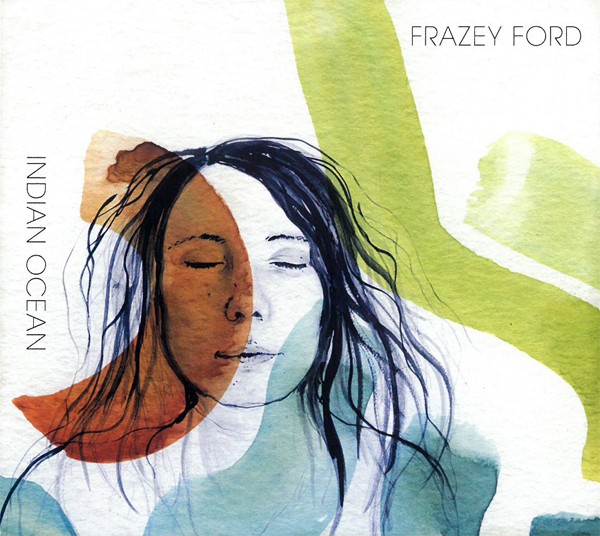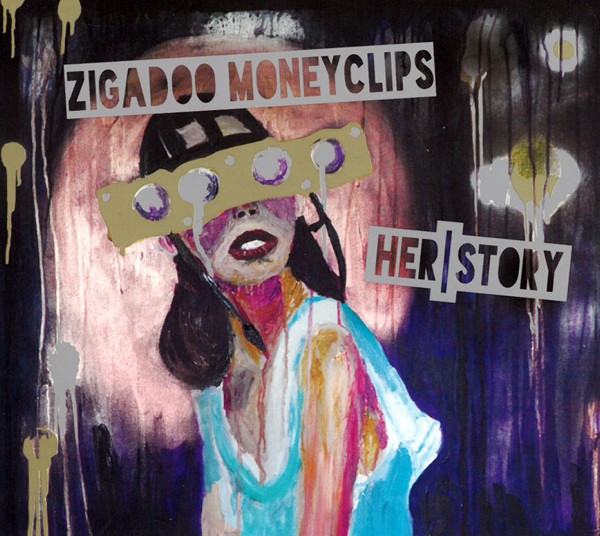Frazey Ford
Indian Ocean
Nettwork
You can hear Frazey Ford’s voice and presence develop from her early ensemble work with Canadian folk trio the Be Good Tanyas in the early 2000s through her current solo work. The Tanyas were a standout band in a crowded field of jangle folk. They kept the sounds acoustic, letting the instruments slyly accommodate their voices. The Tanyas borrowed heavily from the mythical South of white women who sit on the porches of rotting shotgun shacks. But the playing and the singing engage the ear and heartbeat more than many of the genre’s bands. Vancouver-based multi-instrumentalist John Raham, produced the Tanyas last record, 2006’s Hello Love, and Ford’s solo debut, Obadiah, a record that wanted to be a Hi Rhythm record so bad, it couldn’t stand it. That brought them to Memphis.

The liner notes of Ford’s second solo album Indian Ocean mention (in order) Ford, Raham, and then “Memphis Connection” Robert Gordon and Royal Studios engineer Boo Mitchell. It’s a Memphis record, recorded by Mitchell and supported by the three Hodges brothers (bassist Leroy, organist Charles, and guitarist Teenie), horn duo Jim Spake and Scott Thompson, with appearances by Doug Easley and soul blues stalwart James E. Robertson Jr. Bringing a soulful white woman to Memphis is a reliable tactic that worked for Dusty Springfield and Cat Power. Mark Ronson took American soul to Great Britain with Amy Winehouse and Adele before bringing his team to Memphis and recording what is, as I write this, the Number 1 song on the Billboard Hot 100 for the second week in a row: “Uptown Funk.” Indian Ocean is the last credit on Teenie Hodges’ All Music page; he passed away in June of 2014, while the record was still in production before it’s release last October.
The unmistakable magic of these brothers is evident on the downbeat of opener “September Fields.” Charles Hodges bubbles the cauldron of his Hammond organ. Leroy Hodges delivers his patented syncopated notes bouncing between the big fundamentals. Teenie’s iconic, sparse strums and arpeggios are in place. But does Ford’s voice stand up? Does someone from the whispy world of jangle folk have the displacement to race in this engine class? It’s a tough call. Ford has a fluttering, airy sound to her voice that struggles to keep up in the bandwidth as this group rises into a crescendo on “You’re Not Free.” I think she is a super talent who has no business around cymbals. Fortunately, she’s in one of the driest drum rooms in audio history. The more muted arrangement in “Done” suits her and highlights her ability to hover over a note with a lot of feeling. The Hodges’ tick-tock rocks her vulnerable voice like a baby in a crib. Do they steal the show? Yes, they do. But when Ford’s Leslie-speaker swirl voice finds the plateau between beats, it works.
It’s always great to see talented people drawn from far away to participate in our musical culture. Gordon and Mitchell are leading Memphis’ cultural vanguard at the moment. Congratulations to Mitchell on “Uptown Funk’ and to Gordon for the reception of his film Best of Enemies at Sundance. They should be proud of Indian Ocean, too.
Kirk Smithhart Band
Message in the Sky
Self Release
Kirk Smithhart was 19 when his band won the Gibson Guitar Award at the 15th International Blues Challenge in 1998. The Jackson, Mississippi, native worked his own band for a decade before joining Cody Dickinson’s Hill Country Revue, a project that grew out of larger-band experiments by the North Mississippi Allstars and took wing during Luther Dickinson’s stint with the Black Crowes in the late 2000s. For Smithhart to fill Luther’s shoes tells you how nuanced his guitar playing can be. His latest album, Message in the Sky, covers a wider range of sounds.
Opener “Send for Me” is a spacious blend of guitars chiming in harmony: slides, acoustic and electric steel strings deftly set out into the stereo field. Drummer Edward “Hot” Alexander’s dramatic toms stand out early. His resume also includes work with O’Landa Draper’s Associates, Voodoo Village, and Cody Dickinson’s Hill Country Revue. Keyboardist Pat Fusco plays a Rhodes piano on “Can’t Take it Back.” The combination of static guitars and oscillating Rhodes is a sonic time machine to late ’70s and early ’80s FM hits. When one of these songs wants to follow an influence, Smithhart indulges. He has listened to some Joe Walsh along the way. There are radio-grunge sounds of the ’90s. The songs in question are not hints of these sounds, but all-in explorations of sounds that Smithhart or anyone else his age heard growing up. Had this record been released in 1980, he would be a superstar.
Many of the old cranks who like to dust up Facebook with provocative nostalgia will flip for the sound of this record. It’s blues derived rock, which — like meat, motors, and questionable uses of fire — is not for everybody. But Smithhart has made a refreshingly earnest record that is a fascinating map of influences from the late 20th century.
This record gets straight to the point of an argument that never stops, especially in Memphis. A listener has the right to ask, “Is this music? Or is this a case of music being used to serve someone’s social-posturing needs?” The latter is important. As homo sapiens, we need to distinguish ourselves in the course of finding a mate: We collect records and go the “right” shows. Fine. But that music is usually of a cheaper variety. By contrast, there are people whose primary vocation is music or a serious, lifelong interest. With a few exceptions, this longer arc is where the craft is practiced and the art happens. Smithhart is a perfect example of the lifer.
I mean all of the following as compliments: Smithhart is an unapologetic guitarist. This album is stridently disinterested in what is happening now in mainstream popular music and in the court of critical reception. There is too much evidence of Bad Company for this to work in the Nashville Injection Mold Record Extruder. What you are left with is an earnest, uncategorizable, American mix-up. In that regard, it reminds me of Charlie Rich: a true talent who followed his musical muse and let others worry about categories.

Zigadoo Moneyclips
Her|Story
Self-release
This is a lively, upbeat collection of jam-pop tunes from Leigh and Zac Baker with help on bass from Jamie Davis and drummer Paul Taylor. Davis and Taylor are an acrobatic rhythm section. Horns and fiddles augment the sound in sparse, long melodies notably in the title track. The inevitable reference-making starts with the band’s own shout-out to They Might Be Giants. White bands with festival funk underpinnings and trumpets will always live under the shadow of Cake. You can’t completely clean the 311 off of the sound, but you can tell it works well in the last financial refuge of the American musician: the festival. Should we go ahead and call this festival music? Is festival is a genre? It is now. Zigadoo Moneyclips have a sound that is perfectly matched to a large-scale P.A. outside. Wicked drums and bass with horn punches that tense up and release into breezy choruses, particularly on “Esmerelda.” Don’t miss “Jig,” in which the drummer does things you can’t do. The Beale Street Music Festival organizers should get them into a good spot.